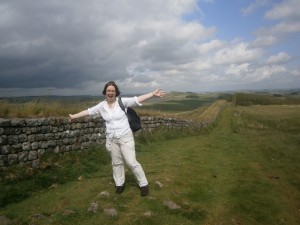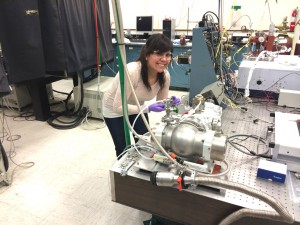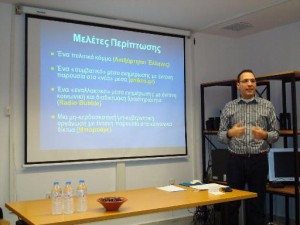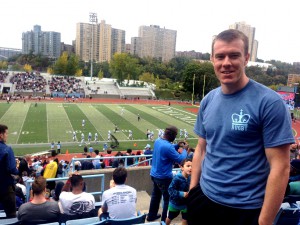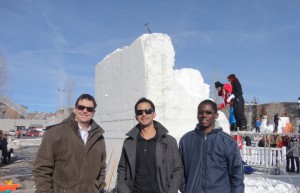
Dr. Jack Stapleton (left), Dr. Nirjal Bhattarai (center) and Ernest Chivero, 2010-2013, Zimbabwe (right) at the 2014 Budweiser International Snow Sculpture Championships
I came to the United States on an International Fulbright Science & Technology Award to pursue a Ph.D. in Molecular and Cellular Biology at the University of Iowa (Iowa) in 2010. Following a welcome reception hosted by the Iowa Chapter of the Fulbright Association and the University of Iowa International Programs office, an Iowan said, “Welcome to Iowa, we have both culture and agriculture!” My time as a Fulbrighter has indeed been a great cultural and academic experience – including getting to know the famous Iowa cornfields!
My academic experience at Iowa has been exceedingly fruitful and exciting. I have been studying how viruses interact with the immune system at the molecular level, and how findings can be translated into new, improved immune-based therapies. I have always wondered what happens when two pathogens infect the same host at the same time. I imagine it’s a fierce territorial battle! Our body is one such host in cases of HIV, GB virus C, Hepatitis C virus, or Tuberculosis co-infections. Dr. Jack Stapleton’s laboratory at Iowa has given me an opportunity to study why HIV-infected people co-infected with GB virus C survive longer than people who are only HIV-infected. To better understand GBV-C’s protective effects in HIV-infected people, I characterize immune cells targeted by GBV-C for infection and how their activation pathways and functions are affected. Our lab and others have shown that GBV-C infection reduces the activation of immune cells and I believe that understanding the mechanisms of GBV-C modulation of immune cell activation may lead to novel ways to treat HIV-induced immune activation and inflammation.

